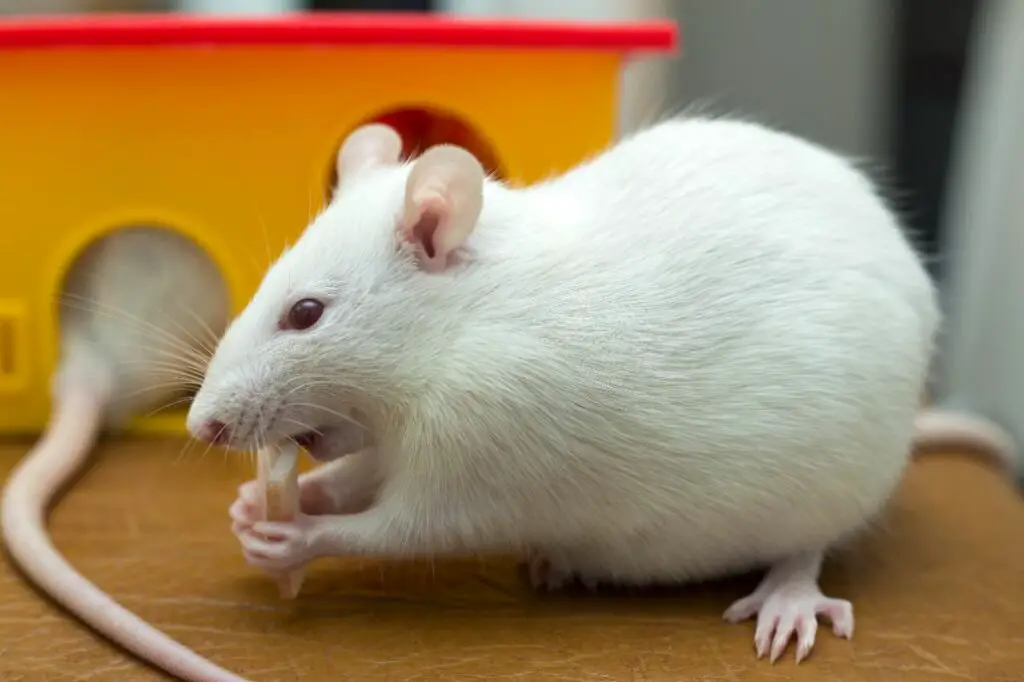Rats are one of the most controversial animals in the world. They are commonly associated with filth, disease, and destruction. However, those associations are gross misconceptions of the cute and sweet animals they really are. Luckily, over the years, more and more people have come to realize that rats are fantastic pets!
One of the most intriguing questions about rats is whether they are cannibals. Cannibalism in rats is a topic that has been studied extensively by researchers and experts in the field.
In this blog post, we will take a closer look at the natural diet and feeding habits of rats, their cannibalistic behavior, and its implications.

Understanding Rats: Natural Diet and Feeding Habits
What do Rats Normally Eat in the Wild?
Rats are omnivorous, which means they feed on both plant and animal matter. In the wild, rats eat a variety of foods depending on their location and habitat.
In urban areas, rats feed on garbage, pet food, and other human-made foods. In rural areas, rats feed on seeds, fruits, insects, and small animals such as mice and birds.
How do Rats Hunt and Capture their Prey?
Rats are excellent hunters and have well-developed senses that help them locate and capture prey. They use their sharp teeth and claws to catch and kill their prey.
Rats are also known to use their keen sense of smell to locate food sources.
What are the Characteristics of a Healthy Rat Diet?
A healthy rat diet should consist of a variety of foods, including fruits, vegetables, grains, and protein sources.
Rats require a diet that is high in protein to support their growth and development. A balanced diet should also include calcium to promote healthy bone growth.
Rats and Cannibalism: What We Know About their Eating Habits
Is Cannibalism Common Among Rats?
Cannibalism is not a common behavior among rats. They’re very social animals that prefer to get along with other rather than fight.
However, it has been observed in certain situations, such as overcrowding and food scarcity. Cannibalism is more likely to occur among captive rats than wild rats.
What Triggers Cannibalistic Behavior in Rats?
Cannibalistic behavior in rats is triggered by a variety of factors, including overcrowding, lack of food, and stress.
In some cases, rats may also engage in cannibalism as a way to eliminate weak or sick members of the group.
Do Rats Eat Their Own Offspring?
It is not uncommon for rats to eat their own offspring. This behavior is often triggered by stress or a lack of food.
It is also possible that the mother rat may eat her offspring if she senses that they are sick or weak.
The Role of Environment and Social Dynamics in Cannibalistic Behavior of Rats
How Does Overpopulation Affect Rats’ Eating Habits?
Overpopulation is one of the most common triggers of cannibalistic behavior in rats. When too many rats are forced to share a small space, they become stressed and aggressive.
As a result, they may turn to cannibalism as a way to eliminate weaker members of the group.
What is the Influence of Social Hierarchy in Rat Cannibalism?
Social hierarchy plays a significant role in rat cannibalism. Dominant rats are more likely to engage in cannibalistic behavior than subordinate rats.
Prevention and Management Techniques for Rat Cannibalism
The best way to prevent cannibalism in rats is to provide a healthy and stress-free environment. Rats should be housed in clean and spacious cages with plenty of food and water.
It is also important to avoid overcrowding and to provide rats with ample opportunities for exercise and socialization.
Conclusion
In conclusion, cannibalism is not a common behavior among rats, but it can occur in certain situations. Understanding the natural diet and feeding habits of rats and their social dynamics can help prevent cannibalistic behavior.
It is also important to be aware of the health implications of rat cannibalism and to use safe and effective methods of rat control. By taking these steps, we can help ensure a healthy and safe environment for both rats and humans.
- How Long Do American Eskimo Dogs Live? Important Factors and Care Tips - September 29, 2023
- Do American Bulldogs Need Grooming? Essential Tips and Care Guidelines - September 29, 2023
- Do Bengal Cats Enjoy Playing? Essential Tips for Keeping Them Active - September 29, 2023